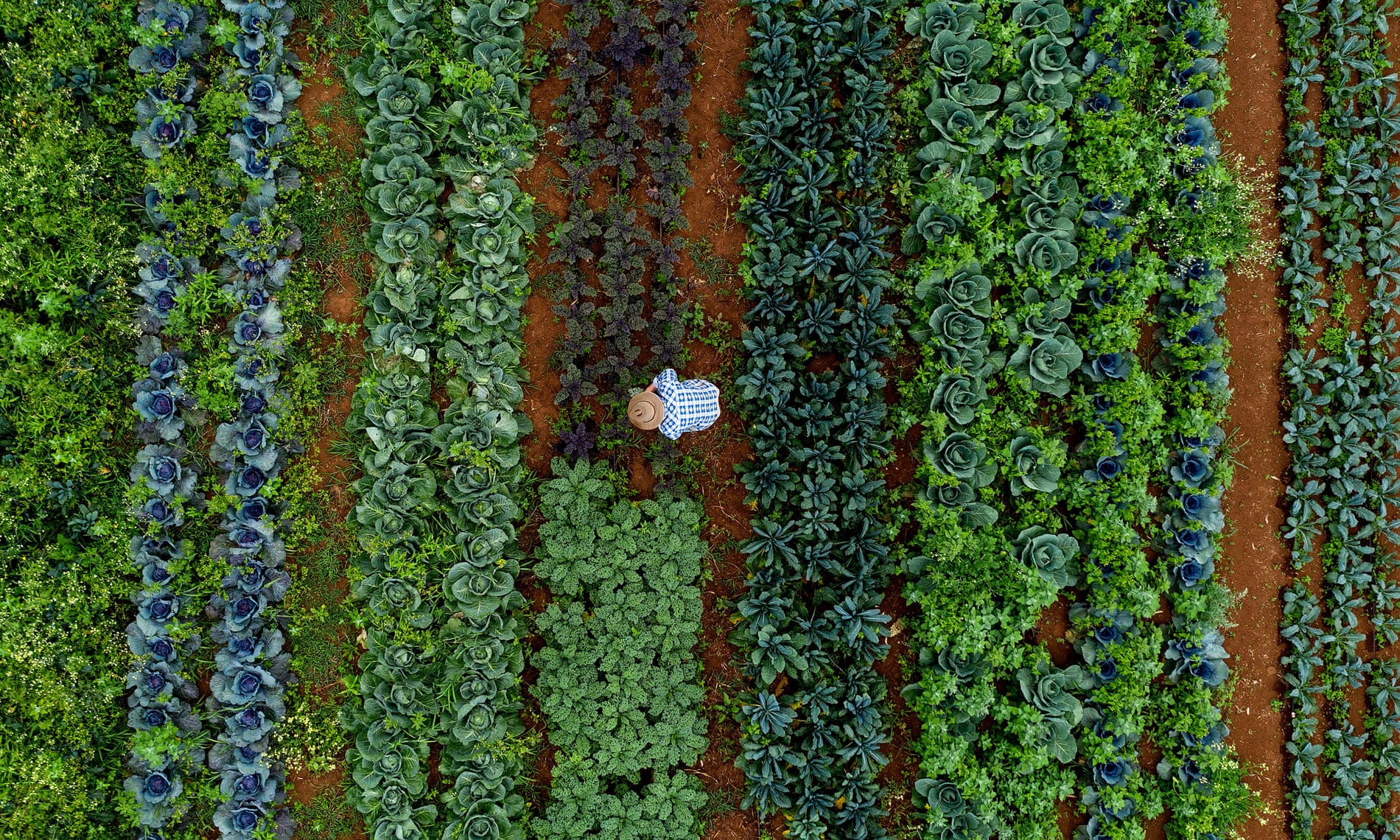A shift towards a more sustainable global food system could create up to $10tn (£7.9tn) of benefits a year, improve human health and ease the climate crisis, according to the most comprehensive economic study of its type. It found that existing food systems destroyed more value than they created due to hidden environmental and medical costs, in effect, borrowing from the future to take profits today.
Food systems drive a third of global greenhouse gas emissions, putting the world on course for 2.7C of warming by the end of the century. This creates a vicious cycle, as higher temperatures bring more extreme weather and greater damage to harvests.
Food insecurity also puts a burden on medical systems. The study predicted a business-as-usual approach would leave 640 million people underweight by 2050, while obesity would increase by 70%.
Redirecting the food system would be politically challenging but bring huge economic and welfare benefits, said the international team of authors behind the study, which aims to be the food equivalent of the Stern review, the 2006 examination of the costs of climate change.
Johan Rockström, of the Potsdam Institute for Climate Impact Research and one of the study’s authors, said: “The global food system holds the future of humanity on Earth in its hand.”
The study proposes a shift of subsidies and tax incentives away from destructive large-scale monocultures that rely on fertilisers, pesticides and forest clearance. Instead, financial incentives should be directed towards smallholders who could turn farms into carbon sinks with more space for wildlife.
A change of diet is another key element, along with investment in technologies to enhance efficiency and cut emissions.
With less food insecurity, the report says, undernutrition could be eradicated by 2050, with 174 million fewer premature deaths, and 400 million farm workers able to earn a sufficient income. The proposed transition would help to limit global heating to 1.5C above pre-industrial levels and halve nitrogen run-offs from agriculture.
Overall, they estimate the costs of the transformation at between 0.2% and 0.4% of global GDP per year.
In early research, Rockström and his colleagues found food was the largest sector of the economy breaching planetary boundaries. As well at the climate impact, it is a major driver of land-use change and biodiversity decline, and is responsible for 70% of freshwater drawdown.
The report was produced by the Food System Economics Commission, which has been formed by the Potsdam Institute, the Food and Land Use Coalition, and EAT, a holistic food-system coalition of the Stockholm Resilience Centre, the Wellcome Trust and the Strawberry Foundation. Academic partners include the University of Oxford and the London School of Economics.
It estimated the hidden costs of food, including climate change, human health, nutrition and natural resources, at $15tn, and created a new model to project how these hidden costs could develop over time, depending on humanity’s ability to change. Their calculations were in line with a report last year by the United Nations Food and Agriculture Organization, which estimated off-books agrifood costs at more than $10trillion globally in 2020.
Dr Steven Lord, of the University of Oxford’s Environmental Change Institute, said in a statement: “This analysis puts a first figure on the regional and global economic opportunity in transforming food systems. While not easy, the transformation is affordable on a global scale and the accumulating costs into the future of doing nothing pose a considerable economic risk.”
Numerous other studies have demonstrated the health and climate benefits of a shift towards a plant-based diet. A report last year by the Climate Observatory notes that Brazil’s beef industry – and its related deforestation – now has a bigger carbon footprint than all the cars, factories, air conditioners, electric gadgets and other sources of emissions in Japan.
The new study is not prescriptive about vegetarianism, but Rockström said demand for beef and most other meat would fall if hidden health and environmental costs were included in the price.
Nicholas Stern, the chair of the Grantham Research Institute on Climate Change and the Environment at the London School of Economics, welcomed the study: “The economics of today’s food system are, sadly, broken beyond repair. Its so-called ‘hidden costs’ are harming our health and degrading our planet, while also worsening global inequalities. Changing the ways we produce and consume food will be critical to tackling climate change, protecting biodiversity, and building a better future. It is time for radical change.”
The main challenge of the proposed food transition is that costs of food would rise. Rockström said this would have to be handled with political dexterity and support for poor sections of society otherwise the result could be protests, such as the gilets jaunes (yellow vests) demonstrations held in France over petrol price hikes.
Christiana Figueres, the former executive secretary of the UN Framework Convention on Climate Change, emphasised the forward-looking nature of the report: “This research … proves that a different reality is possible, and shows us what it would take to turn the food system into a net carbon sink by 2040. This opportunity should capture the attention of any policymaker who wants to secure a healthier future for the planet and for people.”

No comments:
Post a Comment
Je tiens ce blog depuis fin 2005. Tout lecteur peut commenter sous email valide et sous anonymat. Tout peut être écrit mais dans le respect de la liberté de penser de chacun et la courtoisie. Je modère les commentaires.